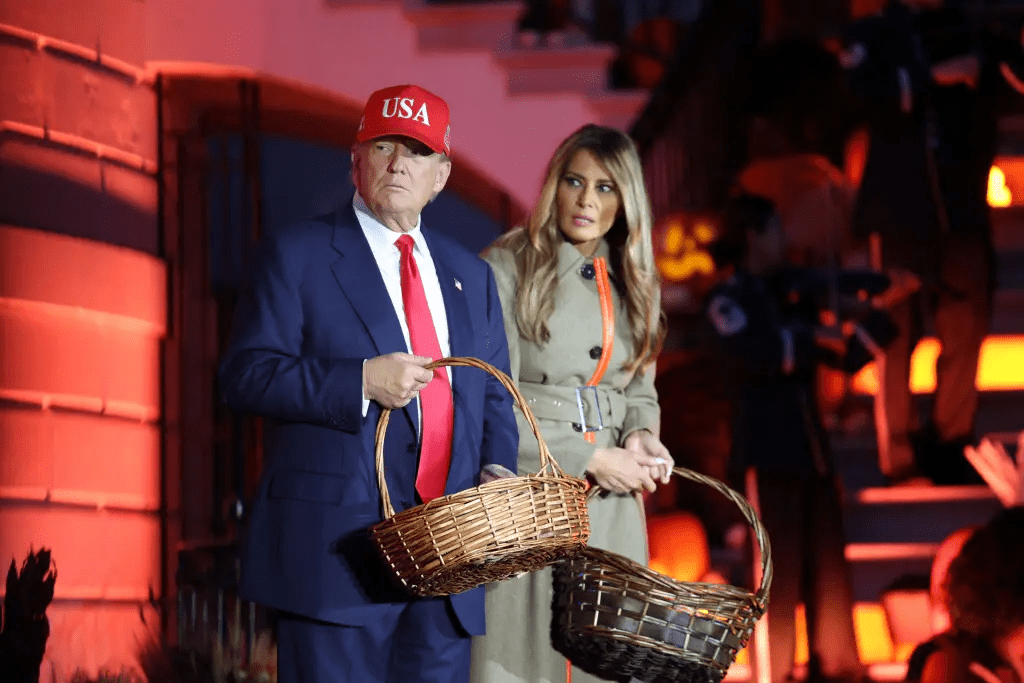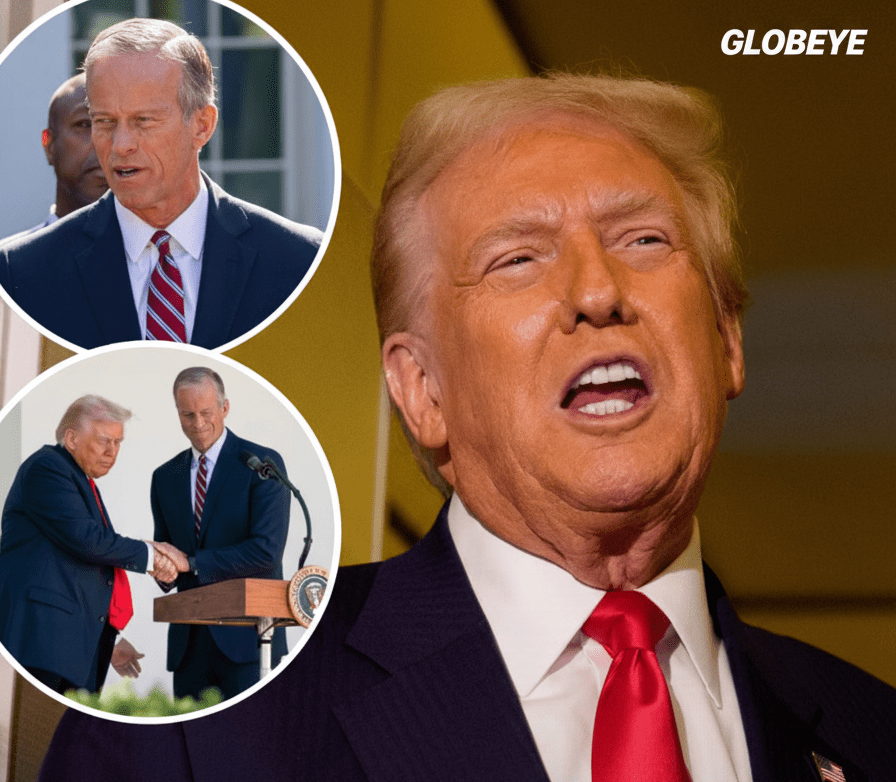Trump demands Republicans scrap Senate filibuster immediately to force open the government
In an unexpected turn amid a crippling government shutdown, former President Donald Trump has called on Senate Republicans to abandon the longstanding 60-vote threshold and deploy what he calls the “nuclear option” to reopen the government. In a late-night series of posts on his platform, Trump declared that because Democrats had “gone stone cold crazy,” the only remedy was to “get rid of the filibuster and end this ridiculous, country-destroying shut down.” His demand catapults the years-long procedural debate over the Senate filibuster into the heart of a funding crisis that now threatens assistance to millions of Americans.
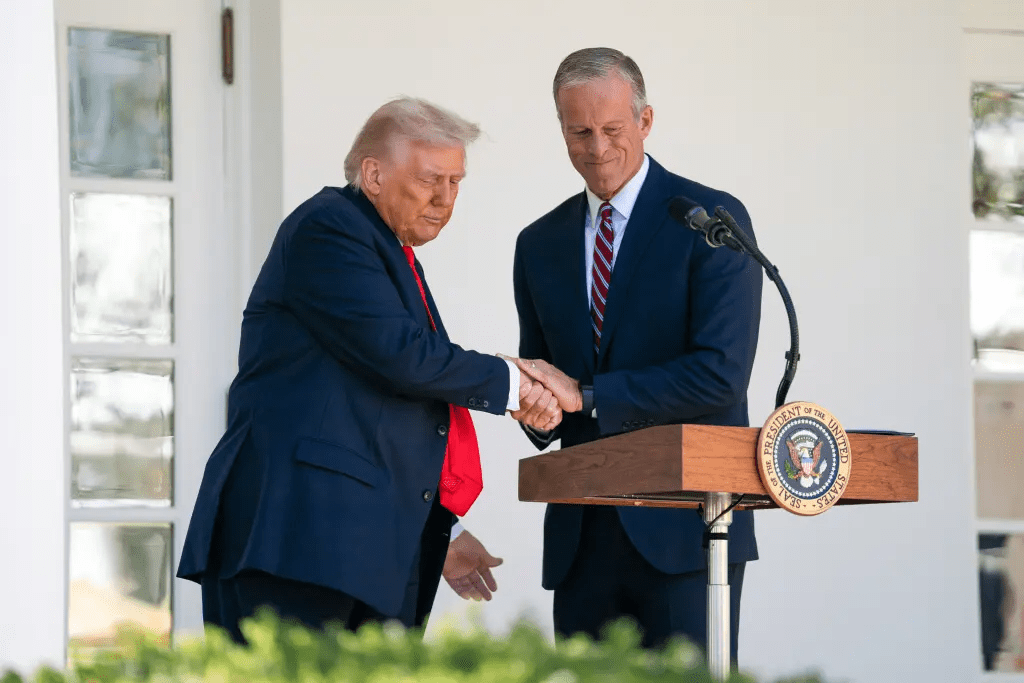
The shutdown has marked its 30th consecutive day. Trump returned from a trip abroad and without ceremony announced his proposal: eliminate the 60-vote requirement that has allowed a minority of senators to block legislation and instead allow funding bills to pass by a simple majority. He argued that under Republican control—of the House, the Senate and the White House—the party should not be forced to negotiate with its opposition simply to keep the lights on. “If we did what we should be doing, it would immediately end this shutdown,” he wrote, calling the stalemate “country destroying.” According to independent reporting, his suggestion runs directly counter to the stance of several Senate Republicans, including Majority Leader John Thune, who has reaffirmed his commitment to preserving the filibuster and the Senate’s tradition of minority protections.
Behind the headlines lies a deeper story of mounting frustration. The filibuster rule has long served as a tool by which the minority party can prolong debate and block legislation. Critics argue its effect is to gridlock the Senate; defenders say it forces negotiation and prevents sweeping changes when power shifts. Trump has previously attacked the rule—both during his presidency and in this shutdown crisis—but now he is urging his own party to break tradition to achieve what he frames as a commonsense reopening of the government. According to media reports, some senators—including Tommy Tuberville and Josh Hawley—have signalled openness to the step, citing humanitarian concerns that the shutdown is hurting families and workers. Yet several senior Republicans maintain the filibuster is essential to preserving institutional guardrails when the other side inevitably regains power.
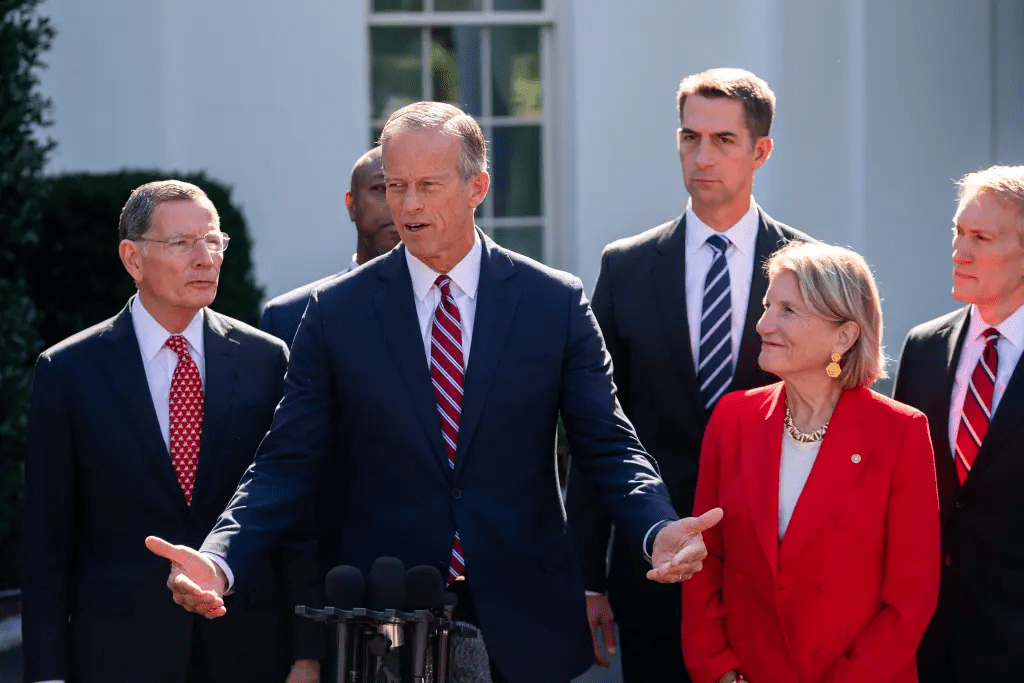
The human stakes of the shutdown are already being felt. Federal food-assistance programmes such as SNAP are approaching funding exhaustion, food banks warn of overload, and numerous federal employees remain furloughed or working without pay. Observers say the shutdown is now nearing the longest funding lapse in U.S. history unless a deal is struck. Trump’s dramatic intervention reframes the impasse: it suggests that procedural reform, not just policy compromise, could be the key to reopening the government. And for many voters, the optics of a stalled government while Washington wrangles over a rule change are becoming intolerable.
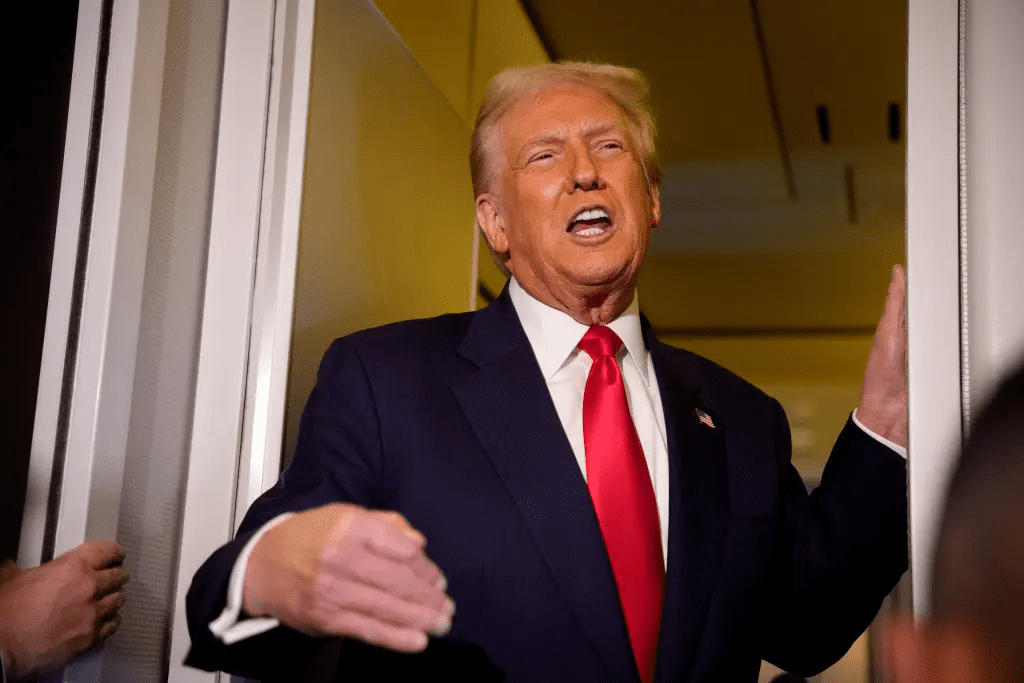
By tying the shutdown resolution to a major parliamentary upheaval, Trump is staking a bold gamble. If the filibuster were eliminated, Republicans could pass funding bills—or potentially broad legislation—with just a simple majority. But the flip side is profound: the move would dismantle one of the Senate’s most enduring institutional safeguards. Critics warn that this could open the door to sweeping policy changes when roles inevitably reverse, and that the very fabric of Senate deliberation would be altered. House Speaker Mike Johnson echoed that concern, stating the matter is a Senate issue but warning against jeopardising the rule simply to meet short-term pressures.
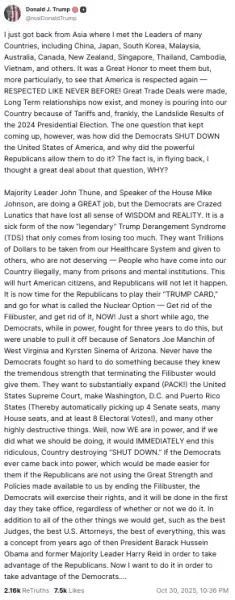
As the shutdown drags on, the question now is whether Trump’s call will galvanize his party or deepen fractures. If Republicans reject his push, the status quo stands and the government remains closed until a bipartisan agreement is achieved. If they accede, the Senate could change its rules—a move that may have long-term reverberations beyond the present crisis. For now, the narrative is unmistakable: the procedural mechanics of Washington are suddenly centre-stage, and the shutdown has become less a budget fight than a battle over how democracy works.
